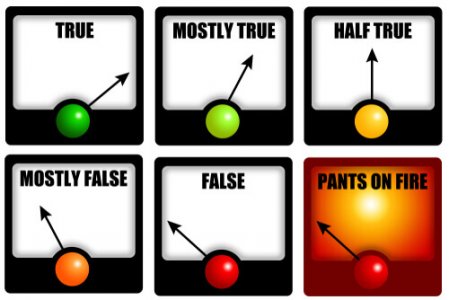On March 13, Reuters published an article, “Special Report: Online activists are silencing us, scientists say“. Reuters used their platform to promote discredited, pseudoscientific treatments and to frame people with ME as violent activists. The article was also picked up in the New York Post, who re-published the content uncritically.
#MEAction is urging the ME community NOT to share, discuss or link to the article on social media so that we don’t promote this deeply biased and flawed narrative on social media.
We are encouraging the community to share on social media the many projects of scientists and people with ME, including research focused on epidemiology, etiology, and treatment at Harvard, Stanford, Cornell and Columbia with all-star scientific teams. Share information and stories about the UK Biobank so that people can see the good work being done in the UK. Share stories about the NIH’s new Collaborative Centers for research. Share good articles about PACE’s flaws, but also about the very real progress we’re making in understanding the science of myalgic encephalomyelitis. Watch and share tweets about the Emerge Australia Conference going on right now. And use the hashtag #ShareGoodScience so that others can find what you recommend. Read more about ME research here.
#MEAction has sent the following letter to the editor of those papers, explaining the current science about ME, the methodological flaws of the PACE trial and that we support rigorous science. Let’s show Reuters that this is not a debate about psychiatry and scare tactics, but stigma and pseudoscience.
We sent the following letter to editors at Reuters and the New York Post:
Letter to the Editor – view pdf
Dear Editor,
We are writing with deep concerns about Kate Kelland’s recent article, Special Report: Online activists are silencing us, scientists say.
Despite Kelland’s framing, the debate is not about a psychological versus a purely biomedical concept of myalgic encephalomyelitis (ME), but pseudoscience versus science. The men Kelland champion in her article have produced poorly-designed research that has drawn criticism from the scientific community.
Kelland’s article omits the 100+ scientists who have called for an investigation and retraction of the PACE trial study based on its numerous methodological flaws.
Kelland’s article omits the 40+ researchers and academics who supported the temporary withdrawal of the Cochrane review of graded exercise therapy for ME/CFS based on concerns about methodological flaws in cited studies, explicitly stating that their decision was in no way due to “patient pressures”.
The article fails to report that people with ME see their health deteriorate after undergoing graded exercise therapy (GET), the therapeutic approach endorsed in the PACE trial. A survey from the UK with over 1000 respondents reported that over 80% experienced worse health outcomes following GET. Yet due in no small part to inflated reports of success by the original authors, the PACE trial continues to serve as frontline evidence to support the treatment of people with ME today.
Furthermore, there is growing evidence that people with ME/CFS experience physiological abnormalities to exercise, including reduced blood flow to the brain and heart, reduced oxygen uptake in hemoglobin, reduced oxygen utilization, and abnormal gene expression.
It took the Lancet 12 years to retract the paper supporting a link between autism and the MMR vaccine, which has done inestimable damage. The methodological flaws of the PACE trial have likewise done irreparable damage to people with ME: stalling biomedical research, quashing funding, contributing to stigma in the clinic and at home, and leading to dismal health outcomes for people with ME. The PACE trial paper is now flagged by PLoS One with an ‘expression of concern’.
In a recent UK House of Commons Parliamentary debate, more than 40 MPs passed a motion to support increased funding into biomedical research, and the suspension of graded exercise therapy. The Danish Parliament recently announced that it will unanimously support using the World Health Organization (WHO) classification of ME as neurological.
The US CDC has removed GET and CBT from its recommendations for treatment and stated that graded exercise may cause harm. The US AHRQ downgraded the evidence for GET and CBT and recommended that Oxford — the broad diagnostic criteria used to recruit people for the PACE trial — be retired. Meanwhile, exciting projects focused on epidemiology, etiology, and treatment push forward at Harvard, Cornell, Columbia and Stanford, with all-star scientific teams. The US NIH funded its first research centers to study ME. And the UK Biobank to study genetics of ME launched, gathering the data of thousands. Read more about ME research.
A sea-change in science has led to a shift in the way researchers and clinicians understand ME. And it goes without saying that this is an unsettling situation for people who have staked their careers on the safety and efficacy of GET and CBT for people with ME.
All this renders Kelland’s recent article, Special Report: Online activists are silencing us, scientists say, biased reporting. In addition, Ms. Kelland and Reuters have contributed to harm by promoting a potentially deleterious treatment as safe, and by framing a disabled population as violent by default.
We urge Reuters to reconsider this stance and hope they will reach out to us or other people with ME with any questions they have about ME’s history, the science behind the condition, and developments in research groups around the world.
Sincerely,






 ) and a message about #MillionsMissing with your own networks. Desktop: Download by right clicking on the image or clicking on the download icon in the bottom right corner of the image. Mobile:
) and a message about #MillionsMissing with your own networks. Desktop: Download by right clicking on the image or clicking on the download icon in the bottom right corner of the image. Mobile:
1 thought on “Fighting for Rigorous Science and Accurate Reporting”
This should also go to the Radio 4 Today programme.
Michael Sharpe was completely unchallenged this morning on this topic.
Comments are closed.